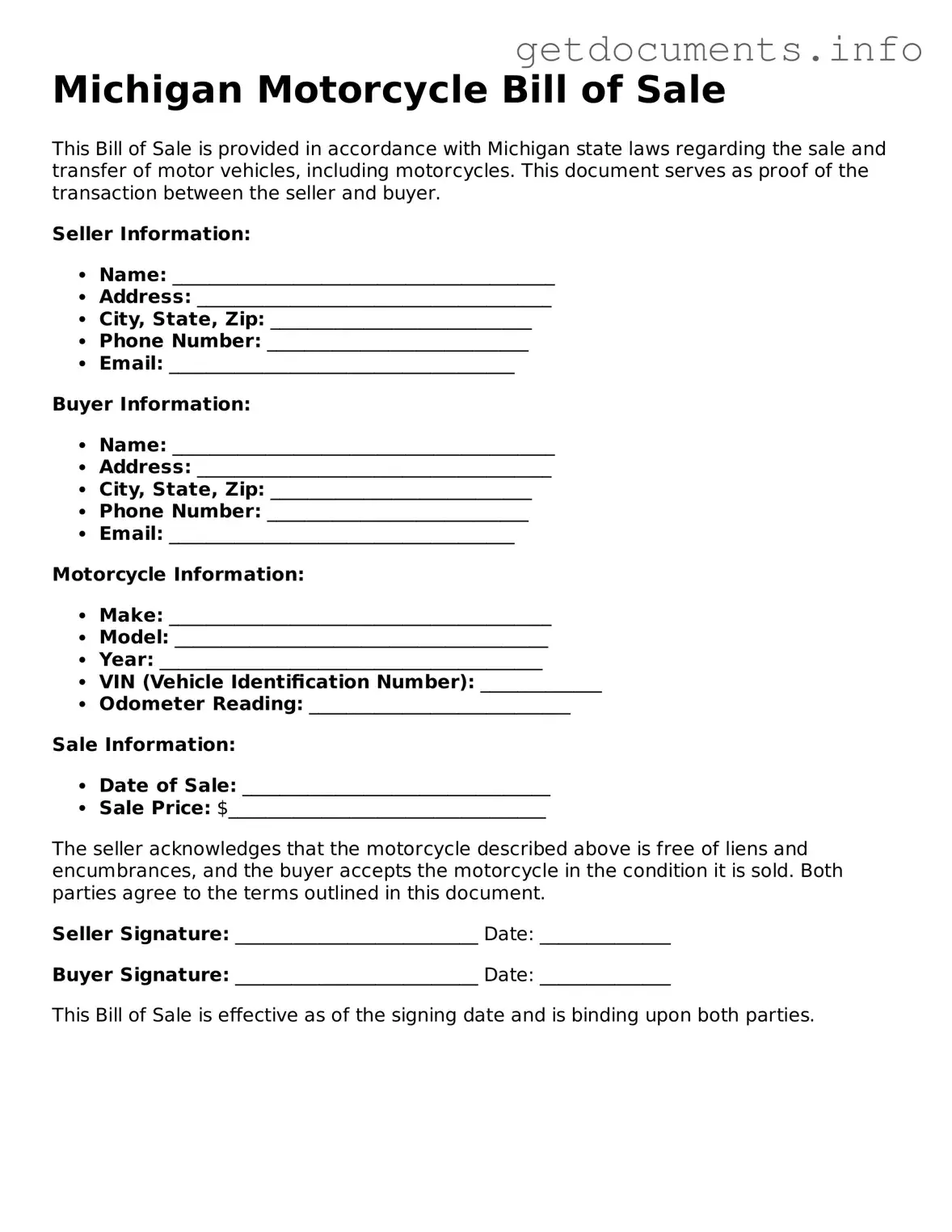Free Motorcycle Bill of Sale Template for Michigan
A Michigan Motorcycle Bill of Sale is a legal document that records the sale and transfer of ownership of a motorcycle in Michigan. This form serves as proof of the transaction and includes important details about the motorcycle and the parties involved. To ensure a smooth transfer process, it is essential to fill out this form accurately.
Start the process by filling out the form below.
Access Motorcycle Bill of Sale Editor

Free Motorcycle Bill of Sale Template for Michigan
Access Motorcycle Bill of Sale Editor
Got places to be? Complete the form fast
Fill out Motorcycle Bill of Sale online and avoid printing or scanning.
Access Motorcycle Bill of Sale Editor
or
⇩ PDF File
